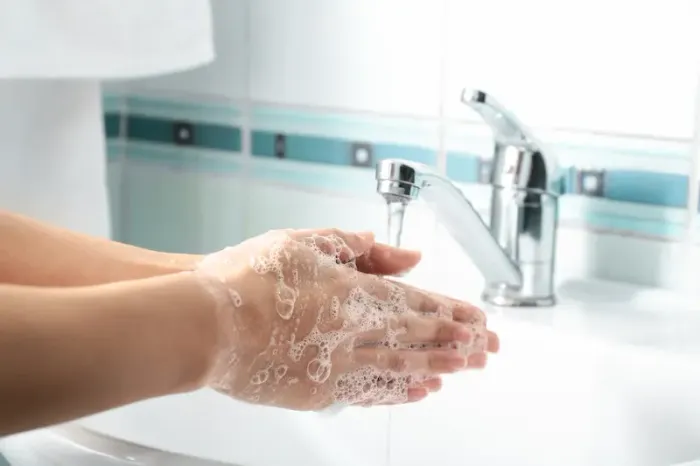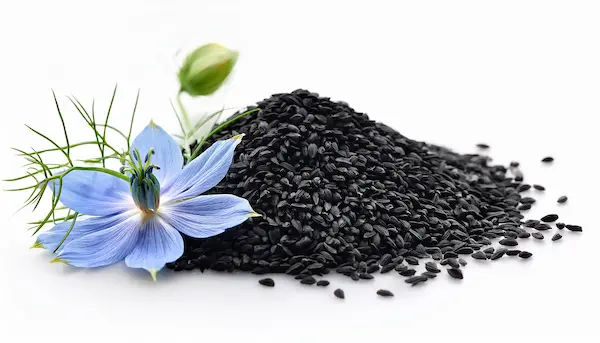Guide to Your Ultimate Guide To Handwashing
Learn the proper techniques, essential supplies, and common mistakes to avoid in this ultimate guide to handwashing. Protect your health and prevent the spread of germs with our expert tips and step-by-step instructions.

Written by Dr. M L Ezhilarasan
Reviewed by Dr. D Bhanu Prakash MBBS, AFIH, Advanced certificate in critical care medicine, Fellowship in critical care medicine
Last updated on 13th Jan, 2026

Introduction
In a world teeming with invisible microbes, your hands are the primary transporters of germs to your eyes, nose, and mouth. This simple act is one of the most powerful public health tools we have, yet most of us don't do it correctly or often enough. This ultimate guide will transform your approach to hand hygiene. We'll dive deep into the science of why it works, provide a step-by-step breakdown of the perfect technique, reveal the critical times you must wash, and debunk common myths. By the end of this guide, you'll be equipped with the knowledge to protect yourself and your family from a host of illnesses, making this simple habit your strongest shield for health.
Why Handwashing is Your First Line of Defense
Think of handwashing not as a chore, but as a "do-it-yourself" vaccine. It's a remarkably effective intervention that interrupts the chain of infection. Every surface we touch—from doorknobs and phones to elevator buttons—can be contaminated with pathogens. Without thinking, we touch our faces an average of 23 times per hour, providing a direct route for germs to enter our bodies.
The Shocking Science Behind Germs and Illness
The Centers for Disease Control and Prevention (CDC) states that handwashing can prevent about 30% of diarrhea-related illnesses and about 20% of respiratory infections. A study published in The Lancet found that improved hand hygiene practices can reduce the risk of respiratory illness by 16-21%. Germs like norovirus (which causes vomiting and diarrhea), influenza, and even common cold viruses can survive on surfaces for hours. Proper handwashing technique removes these pathogens mechanically, preventing them from making you sick.
Beyond Colds and Flu: What You're Really Washing Away
It's not just about the sniffles. Consistent hand hygiene is crucial in preventing the spread of more serious, antibiotic-resistant bacteria like MRSA, and gastrointestinal infections caused by E. coli and Salmonella. This is especially vital in kitchens to prevent cross-contamination of food. If you experience severe or persistent gastrointestinal symptoms, it's important to consult a doctor online with Apollo24|7 to get a proper diagnosis and advice.
Consult Top Specialists
The Gold Standard: How to Wash Your Hands Perfectly
There's a right way and a wrong way to wash your hands. A quick rinse under water isn't enough. Follow these steps, championed by the WHO and CDC, for a truly effective wash.
Step 1: Wet and Lather – The Foundation of Clean
Start by wetting your hands with clean, running water (warm or cold). Apply enough soap to cover all surfaces of your hands. The temperature of the water does not significantly impact germ removal; the key action is the friction from scrubbing.
Step 2: Scrub for 20 Seconds – The Critical Timer
This is the most crucial step. Lather and scrub every part of your hands:
1. Palms together.
2. Back of each hand, with fingers interlaced.
3. Between your fingers, interlocked.
4. The backs of your fingers against opposing palms.
5. Rotational rubbing of each thumb clasped in the opposite hand.
6. Rotational rubbing, backwards and forwards with clasped fingers of the right hand in the left palm and vice versa.
7. Don't forget your wrists!
How long is 20 seconds? Hum the "Happy Birthday" song from beginning to end twice. This ensures you spend enough time to physically dislodge and trap germs in the soap lather.
Step 3: Rinse and Dry – Finishing the Job Right
Rinse your hands thoroughly under clean, running water, allowing all the soap and suspended germs to wash away. Dry them completely using a clean towel or an air dryer. Germs transfer more easily to and from wet hands, so drying is an essential part of the proper handwashing process.
When Should You Lather Up? The Non-Negotiable Times
Knowing when to wash hands is as important as knowing how. Make it a habit during these key moments:
1. Before, during, and after preparing food.
2. Before eating.
3. Before and after caring for someone who is sick.
4. Before and after treating a cut or wound.
5. After using the toilet, changing diapers, or cleaning up a child.
6. After blowing your nose, coughing, or sneezing.
7. After touching an animal, animal feed, or animal waste.
8. After handling pet food or pet treats.
9. After touching garbage.
Soap and Water vs. Hand Sanitizer: Choosing Your Weapon
While soap and water are best, alcohol-based hand sanitizer is an excellent alternative in many situations.
When Hand Sanitizer is a Good Alternative
Use a sanitizer containing at least 60% alcohol when you cannot get to a sink. It's convenient for on-the-go use, like after touching a shopping cart or before a picnic. Apply a palm-full and rub it over all surfaces of your hands until they are completely dry.
The Major Limitations of Alcohol-Based Gels
Hand sanitizer does NOT eliminate all types of germs. It is notably less effective against nasty stomach bugs like norovirus and Cryptosporidium. It also doesn't remove harmful chemicals, like pesticides, or visible dirt and grime. Always opt for soap and water when your hands are visibly dirty or after handling chemicals.
Common Handwashing Mistakes You're Probably Making
Even with the best intentions, people often make errors that reduce effectiveness:
1. Not washing long enough. The average person washes for only 6 seconds.
2. Missing key spots. The thumbs, backs of hands, and under fingernails are commonly neglected.
3. Rinsing with hands pointed up. This allows dirty water to run down to the elbows. Point fingers downward.
4. Using a dirty, damp hand towel. This re-contaminates clean hands. Use a fresh towel or air dry.
5. Turning off the faucet with clean hands. Use a paper towel to turn off the faucet and open the door in public restrooms.
Hand Hygiene for Kids: Making Clean Hands Fun
Teaching children how to teach kids to wash hands is fundamental. Make it a fun routine rather than a nagging task. Use glitter to represent "germs" and show how soap and water makes it disappear. Sing songs together for the full 20 seconds. Let them pick out their own fun-shaped soaps and colorful towels. Consistently modeling the correct behavior is the most powerful teacher.
Conclusion: A Simple Habit for a Healthier Life
Handwashing is a simple, quick, and incredibly cost-effective way to protect your health. It’s a personal ritual with a powerful public benefit, reducing the spread of infectious diseases in your community. By mastering the perfect technique, understanding the critical times to wash, and knowing the role of sanitizer, you empower yourself to stay healthier throughout the year. Integrate these practices into your daily routine—your body will thank you. Remember, if you do fall ill with symptoms that are severe or persist, consult a doctor online with Apollo24|7 for professional medical advice tailored to your situation.
Consult Top Specialists
Consult Top Specialists

Dr. Vivek D
General Physician
4 Years • MBBS
Bengaluru
PRESTIGE SHANTHINIKETAN - SOCIETY CLINIC, Bengaluru

Dr Syed Mateen Pasha
General Physician
2 Years • MBBS
Bengaluru
PRESTIGE SHANTHINIKETAN - SOCIETY CLINIC, Bengaluru

Dr. Anand Ravi
General Physician
2 Years • MBBS
Bengaluru
PRESTIGE SHANTHINIKETAN - SOCIETY CLINIC, Bengaluru

Dr. Harshendra Jaiswal
General Physician/ Internal Medicine Specialist
12 Years • MBBS , MD (General medicine)
Kolkata
108 DHANA DHANVANTARI Clinic, Kolkata
(25+ Patients)

Dr. Syed Ismail Ali
General Practitioner
7 Years • MBBS
Hyderabad
Apollo 24|7 Clinic, Hyderabad
Consult Top Specialists

Dr. Vivek D
General Physician
4 Years • MBBS
Bengaluru
PRESTIGE SHANTHINIKETAN - SOCIETY CLINIC, Bengaluru

Dr Syed Mateen Pasha
General Physician
2 Years • MBBS
Bengaluru
PRESTIGE SHANTHINIKETAN - SOCIETY CLINIC, Bengaluru

Dr. Anand Ravi
General Physician
2 Years • MBBS
Bengaluru
PRESTIGE SHANTHINIKETAN - SOCIETY CLINIC, Bengaluru

Dr. Harshendra Jaiswal
General Physician/ Internal Medicine Specialist
12 Years • MBBS , MD (General medicine)
Kolkata
108 DHANA DHANVANTARI Clinic, Kolkata
(25+ Patients)

Dr. Syed Ismail Ali
General Practitioner
7 Years • MBBS
Hyderabad
Apollo 24|7 Clinic, Hyderabad
More articles from General Medical Consultation
Frequently Asked Questions
1. Is antibacterial soap better than regular soap?
No, according to the FDA, there is no scientific evidence that over-the-counter antibacterial soaps are more effective at preventing illness than plain soap and water. The physical action of scrubbing and rinsing is what removes germs.
2. What is the best way to dry my hands?
Both paper towels and clean air dryers are effective. The key is ensuring your hands are completely dry. If using a cloth towel at home, ensure it is changed regularly to avoid re-contaminating clean hands.
3. How does handwashing actually kill germs?
Soap doesn't 'kill' germs in the way sanitizer does. Instead, it acts like a crowbar. Soap molecules surround and pry germs loose from your skin. The friction from scrubbing dislodges them, and the running water then washes them away down the drain.
4. What if I have sensitive skin that gets irritated from frequent washing?
Use a mild, fragrance-free soap. Moisturize your hands immediately after drying them. This helps repair the skin barrier. If irritation persists, you can consult a dermatologist online with Apollo24|7 for specific advice.
5. Can hand sanitizer expire?
Yes, the alcohol in sanitizer can evaporate over time, reducing its effectiveness below the 60% threshold. Always check the expiration date on the bottle.




